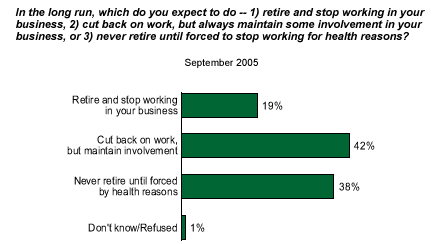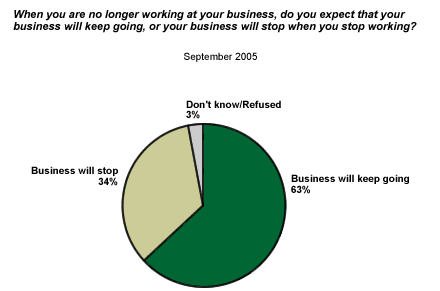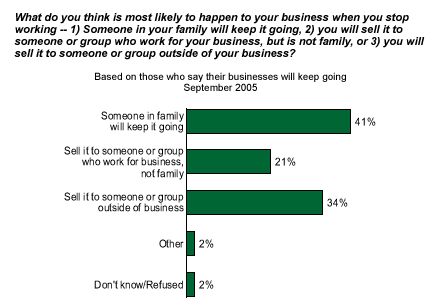Most Small Business Owners Feel Successful
Below is a great article from Gallup that I thought was very motivating from the GALLUP NEWS SERVICE.
source: http://www.gallup.com/poll/24103/Most-Small-Business-Owners-Feel-Successful.aspx
PRINCETON, NJ -- Today's economic environment is extremely challenging for small business owners given surging gas prices at the pump and more than two years of interest rate increases. Despite all the difficulties facing the nation's small business owners, however, most feel successful and given the choice, say they would do it over again according to the most recent Wells Fargo/Gallup Small Business Index poll. Most also say being a small business owner has made them better off financially.
Most Feel Successful
Nine in 10 small business owners say they feel successful. In fact, 47% feel extremely successful (8%) or very successful (39%). Nearly half (45%) feel somewhat successful while only 6% feel not too successful and just 1% feel not at all successful.
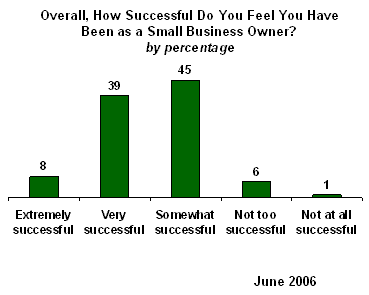
Eighty-seven percent of small business owners also say they are satisfied being a small business owner, with just 12% saying they are not.
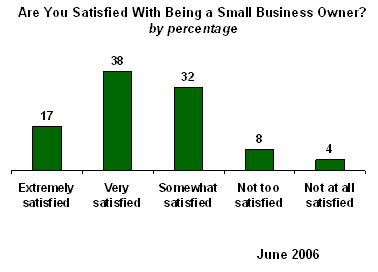
Most Would Do It Again
What if small business owners were given another chance to choose between being a small business owners and doing something else? Eighty-three percent say they would do it over again and choose to be a small business owner.
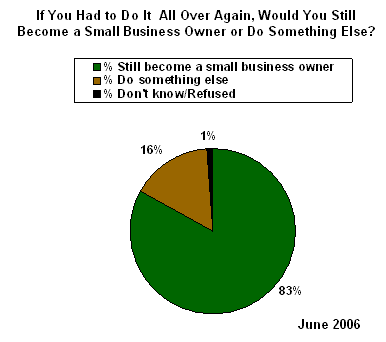
Most Say They Are Financially Better Off
Three in four small business owners say they are better off financially being a small business owner than they would be working for some other company. However, just about half feel they make more money per hour as a small business owner than they would as an employee of another company.
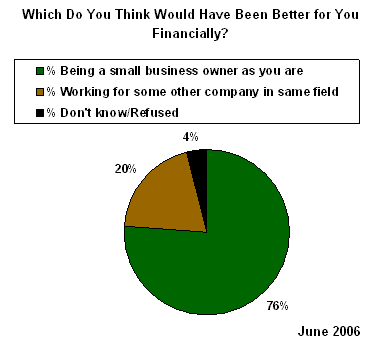
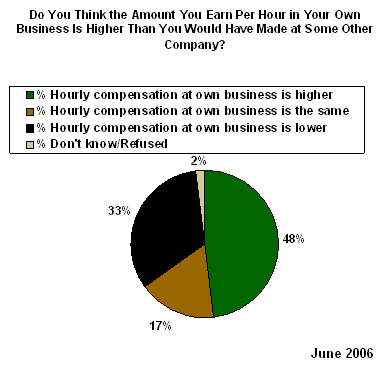
A Passion for the Job
Being a small business owner clearly has many rewards. Even during challenging times, most small business owners would do it again. Still, this survey and previous Wells Fargo/Gallup Small Business Index surveys suggest small business owners must have a passion for what they do. They find themselves working many hours and discover working hard becomes an essential part of their work-life balance.
Survey Methods
Results for the Wells Fargo/Gallup Small Business Index poll are based on telephone interviews with 602 small business owners conducted May 22-June 9, 2006. For results based on the total sample of investors, one can say with 95% confidence that the maximum margin of sampling error is ±4 percentage points.
